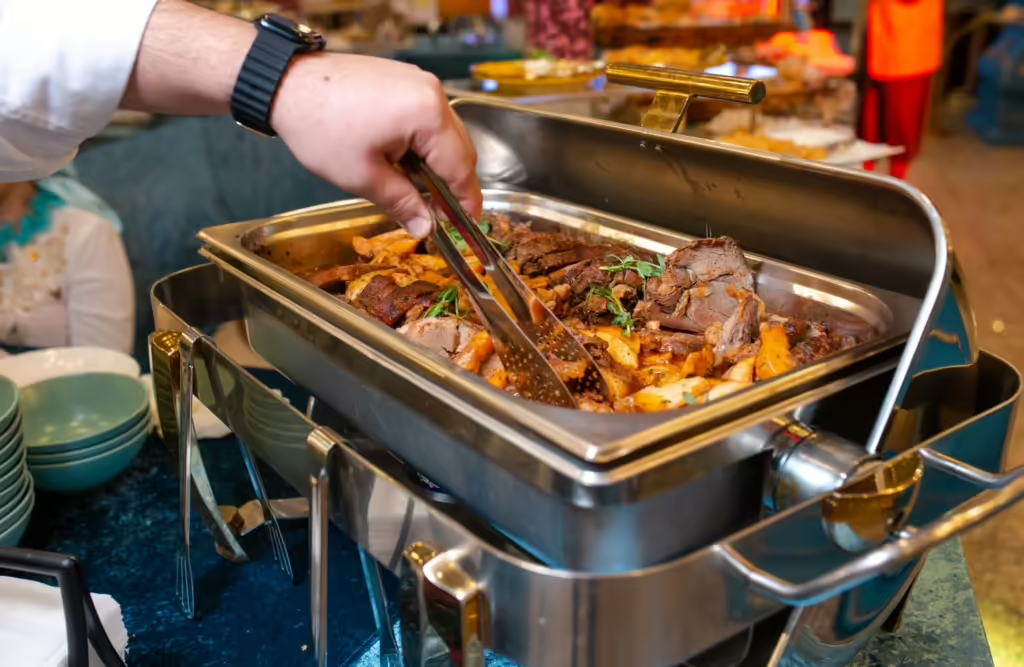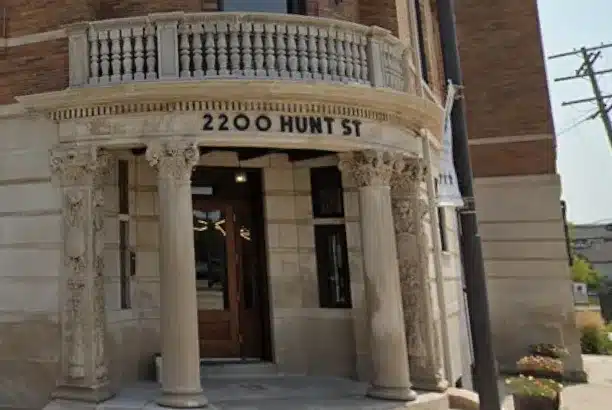What Should You Do if You Get Food Poisoning from a Restaurant?
Whether you were out with your family on a Friday night, or gathering with colleagues for your annual holiday party, if you suspect you’ve gotten food poisoning after dining at a restaurant, take the following steps immediately:
- Preserve the Evidence: If you still have any of the suspected tainted food, don’t throw it away. Instead, keep it in your possession and freeze it as soon as possible. This could be critical evidence in your case.
- Document Everything: If the food poisoning is due to something visible, like a foreign object in the food, take photos and videos immediately.
- Do Not Return the Food: If you’re still at the restaurant, resist any requests from the management to hand over the food. It’s vital to keep it as evidence.
- Save Your Receipt: If you have a receipt from the restaurant, do not throw it away. It can be used as proof later on that you ordered food from or that you were indeed at the restaurant. Most receipts are itemized so it will also show what food products you ordered.
What Are the Risks of Getting Food Poisoning?
Food poisoning, often perceived as a temporary discomfort, can have far-reaching health consequences, particularly for certain vulnerable groups of people.
Some of the more serious health complications Include:
- Organ Failure: Some instances of food poisoning can lead to long-lasting health issues. For example, certain types of E. coli can cause kidney failure, particularly in young children or elderly adults.
- Neurological Problems: Certain foodborne pathogens, like those causing botulism, can affect the nervous system, leading to paralysis or neurological damage.
- Chronic Arthritis: Reactive arthritis, a condition that can develop after food poisoning, causes painful joint inflammation and can become chronic.
The highest-risk groups for food poisoning include:
- Young Children: Their developing immune systems are not as equipped to handle harmful bacteria, making them more susceptible to severe symptoms and complications.
- Elderly Individuals: As the immune system weakens with age, older adults are at a higher risk of serious illness from foodborne pathogens.
- Pregnant Women: Changes in the immune system during pregnancy make women more vulnerable to certain types of food poisoning, like listeriosis, which can have serious effects on the unborn baby.
- People with Weakened Immune Systems: Individuals with chronic illnesses or those undergoing treatments like chemotherapy are at a heightened risk of severe complications from foodborne illnesses.
Some of the common foodborne pathogens are:
- Salmonella: Often associated with poultry, eggs, and contaminated produce, salmonella infections can lead to severe gastrointestinal symptoms and, in some cases, can spread to the bloodstream.
- Norovirus: Known for causing outbreaks in close quarters like cruise ships and nursing homes, norovirus can lead to severe dehydration from vomiting and diarrhea.
- E. Coli: Certain strains of E. coli are relatively harmless, but others like E. coli O157:H7 can cause severe abdominal cramps, bloody diarrhea, and vomiting. It can even cause perforations in your intestinal track.
- Listeria: This bacterium can be found in unpasteurized dairy products and ready-to-eat foods. It’s particularly dangerous for pregnant women, as it can lead to miscarriages, stillbirths, or severe illnesses in newborns.
- Hepatitis A: Transmitted through contaminated food or water, Hepatitis A can cause liver inflammation, jaundice, and in severe cases, liver failure.
To reduce the risk of food poisoning, it’s essential for restaurants to practice safe food handling, including proper cooking and storage methods. Washing hands and surfaces often, avoiding cross-contamination, and staying informed about food recalls can also help prevent foodborne illnesses.
Food poisoning encompasses a range of potential health risks that can go beyond temporary discomfort. Understanding these risks, especially for vulnerable groups, is crucial in recognizing the seriousness of foodborne illnesses. If you believe you have contracted a severe form of food poisoning due to a restaurant’s negligence, legal recourse may be available. Consulting with a knowledgeable attorney, such as those at RTRLAW, can provide guidance and support in addressing these concerns and pursuing appropriate compensation for any harm suffered.
Kenia Rojas
(Translated by Google) Incredible service from RTR and her legal team. I'm incredibly happy with the results I was able to achieve with her. Thank you so much for your advice and the success we've achieved! (Original) Increíble atención de parte de rtr y su equipo legal , me siento demasiado feliz con los resultados que pude obtener con ella. Les doy muchas gracias por su asesoría y los logros que pudimos obtener!
How Can RTRLAW Assist You with Your Case?
At RTRLAW, we specialize in handling cases of food poisoning caused by unsafe or unsanitary conditions at restaurants or other places serving food. Since 1988, RTRLAW has secured hundreds of millions of dollars in settlements and verdicts for clients who have suffered due to negligence. Our recoveries have provided essential compensation for medical bills, lost wages, and non-economic damages like reduced quality of life.
If you’ve contracted food poisoning from a commercial establishment, you’re entitled to seek justice and potentially receive compensation for your suffering. Follow these steps:
- Seek Medical Treatment: Immediate medical attention is paramount for your health and also serves as documentation of your illness. If you go to a hospital or urgent care center, make sure that the medical staff puts in the medical records the name of the restaurant that poisoned you. This will help to strengthen your case against the restaurant.
- Identify the Source: Note details of where you ate, including the name and contact information of the establishment.
- Report the Incident: It is important to call or notify the establishment in person of the incident. Get the name of the employee or manager that you speak with.
- Save and Freeze Any Leftovers: Be sure to keep any leftovers of the food that made you ill and freeze it so it can be used as evidence in a potential lawsuit.
- Contact RTRLAW: After receiving medical care, call or text us at 1-833-HIRE-RTR (1-833-447-3787) for a free, no-obligation case review. We’re available 24/7 to discuss your case.
RTRLAW is dedicated to your convenience and comfort. We offer:
- Flexible Meeting Options: Meet with us by phone or video conference, at our offices throughout Florida and Texas, or we can come to your home, place of business, or hospital.
- Electronic Document Signing: For ease and speed, all documents can be sent electronically and signed on your phone or computer.
- No Upfront Costs: We operate on a contingency fee basis, meaning you pay nothing unless we win your case.
Food poisoning can be a serious matter with significant health and legal implications. If you’ve suffered from food poisoning due to a restaurant’s negligence, RTRLAW is here to help.
With more than three decades of experience and a commitment to fighting for your rights, RTRLAW is well equipped to handle your case with the care and attention it deserves. Contact us today for a comprehensive review of your case and expert legal support.
Revision History:
- Feb 12, 2026 at 3:33 pm by RTRLAW (displayed above)
- Jan 13, 2026 at 7:04 am by victor


 CALL US NOW
CALL US NOW TEXT US NOW
TEXT US NOW






























